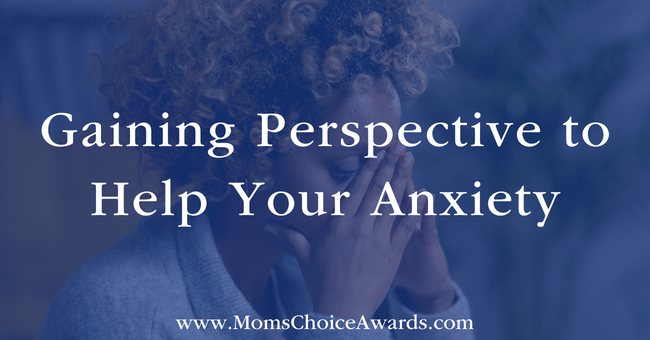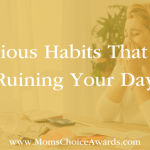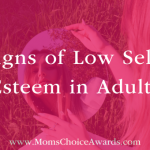 Draven Jackson
Draven Jackson
Blogger | Teacher
Twitter
As Jen Lilley once said, “Stress is a downward spiral, and you can only overcome it with a positive perspective.” For those dealing with intense anxiety that can feel crippling at times, it can be hard to crawl your way out of the spiral your mind can send you into over the smallest of things. It’s easy to worry yourself into sickness, stress, or depression.
The best way to try and combat moments of extreme anxiety is to ask yourself important questions to help gain a little perspective on your problems or your life.
If you’re stressed about where you are in life, what would you tell your best friend if they came to you with the same problems? If you’re worried about making a large purchase or a possibly plan-altering decision, what’s the actual, logical worst thing that could happen?
Don’t allow your stress to take over your mind and steal away your happiness – instead, if you’re feeling anxious, take a look at the questions below and try your best to gain a little perspective on what’s really going on. You might find that nothing is as bad or as hard as you believed.
What’s the worst thing that will happen?
My number one perspective-encouraging question to myself during moments of intense anxiety is “What’s the worst thing that will happen?” It can be easy to feel stressed and anxious and not really know what you should do when you have to make a big decision, and the frankly suffocating emotions can make it hard to recognize the reality of what would actually happen based on your choice.
If you make a big purchase or decide to change jobs, what is the worst thing that would happen? Maybe money will be tight for a little while depending on your financial situation, but as long as you can cover your bills and living expenses, you’re going to be completely fine.
Obviously, there are a lot of terrible things that happen all the time. But there’s no real way to account for any of those, and feeling undue stress about something you can’t even begin to consider is only going to make things worse for you in the long run.
Instead, ask yourself “what’s the worst thing that could happen” and logically answer that with things you can account for. As long as you’re safe, happy, and can take care of your needs, then it’s nothing bad enough to experience anxiety over.
What would you tell your best friend?
This one best fits when I’m experiencing social anxiety or moments where I’ve convinced myself that someone is angry at me or doesn’t like me (without really having any proof).
If your best friend came to you with the same situation you’re experiencing and the same feelings you’re having, what would you tell her? Would you say that she’s right, that people are angry and that she’s messed everything up? Or would you tell her she’s overthinking it and worrying about something without really having any reason to?
Many times, anxiety makes it easy for our brains to be cruel or mean to us by saying, “yes, yes, you’re right and you are the problem.” Honestly, though, very rarely is that true. So if you find that your brain is pushing negative thoughts and feelings, consider changing the perspective so that you’re giving advice to a friend rather than trying to convince yourself.
You may find that you’re much nicer to someone else, and can therefore think of a calmer way to handle the situation.
Are you safe, happy, and fulfilling your responsibilities?
One of my loudest negative thoughts when I’m experiencing intense anxiety is the idea that I’m “failing” or I’m “not good enough.” It’s like one anxiety (whatever the initial stress was) spirals into another and then another until it’s just me berating myself for something that wasn’t even the problem.
When this happens, I like to step back and force myself to look at my life from a new perspective. No matter what’s happening or what I’m feeling, am I safe and happy and fulfilling all of my responsibilities (going to work, paying my bills, etc.)?
If the answer is yes, then it’s time for me to step away from the negative thought spiral and affirm that I am doing the best I can and trying my hardest and that’s enough. You don’t have to be perfect – as long as you’re happy and safe and doing what you need to live, that’s all that really matters.
Is it more harmful to worry about it than to do it?
It’s funny to think about, but sometimes I feel like the anxiety and worry itself are more harmful to my well-being than actually doing whatever it is that’s stressing me out. If I’m feeling anxiety over something small like buying a new outfit, cutting my hair, or sitting down with someone I care about and being honest about something bothering me, many times I almost make myself sick with worry.
But is the worry itself more harmful than simply doing it? Spending a little money on myself isn’t bad, and getting a haircut won’t be life-altering (at most, a bad haircut would only last a few weeks). It’s the worrying that hurts me more than the action.
Are you hurting anyone else?
Here’s a big question for everyone who experiences anxiety about being honest about the things you like and enjoy: are you hurting anyone else? If you buy that action figure, are you hurting anyone? When you talk about your favorite TV show – no matter how “childish” or “nerdy” it may be to some – are you causing anyone distress?
If the answer is no, then there’s no reason to feel so much anxiety about it! Shame culture is a dangerous thing, and it’s convinced us that we should hide the things that we enjoy for fear of being shamed or ridiculed about it. However, as long as no one is hurt by what you enjoy, then there’s no reason to hide it away.
Do away with the shame and promote your interests proudly! As long as you’re happy and no one is hurt by it, then there’s nothing wrong with being true to yourself.
What are you really worried about?
At the end of the day, anxiety over small problems usually stems from a bigger issue. So it’s important to ask yourself “what are you really worried about?” If you’re worried about making a purchase or changing jobs, is there something wrong with your finances that’s causing that worry? Or is it a concern that stems from a deeper fear?
Try to pinpoint what it is that worries you and see if it’s something you can rationalize or something you may need to talk with someone else about. Sometimes your anxiety may be beyond your control, and it’s okay to ask for help.
Perspective isn’t always something you can find on your own, so going to someone else to try and find a new way to look at your anxiety may help you more than you might have realized.
Do you know of more ways we can gain a bit of perspective to help with our anxiety? Tell us in the comments!
 About Draven Jackson
About Draven Jackson
Draven is an avid writer and reader who enjoys sharing her opinions on movies, books, and music with the rest of the world. She will soon be working as a teacher in Japan and hopes to use her experience to connect with other teachers and students around the globe. Draven spends most of her time at home with her family, her dogs, and her ferret.
To see more, view all posts by Draven Jackson here.






3 Comments on “Gaining Perspective to Help Your Anxiety”
Great advice
Anxiety is a new problem for me, I appreciate the information
a great article and inspires me a lot